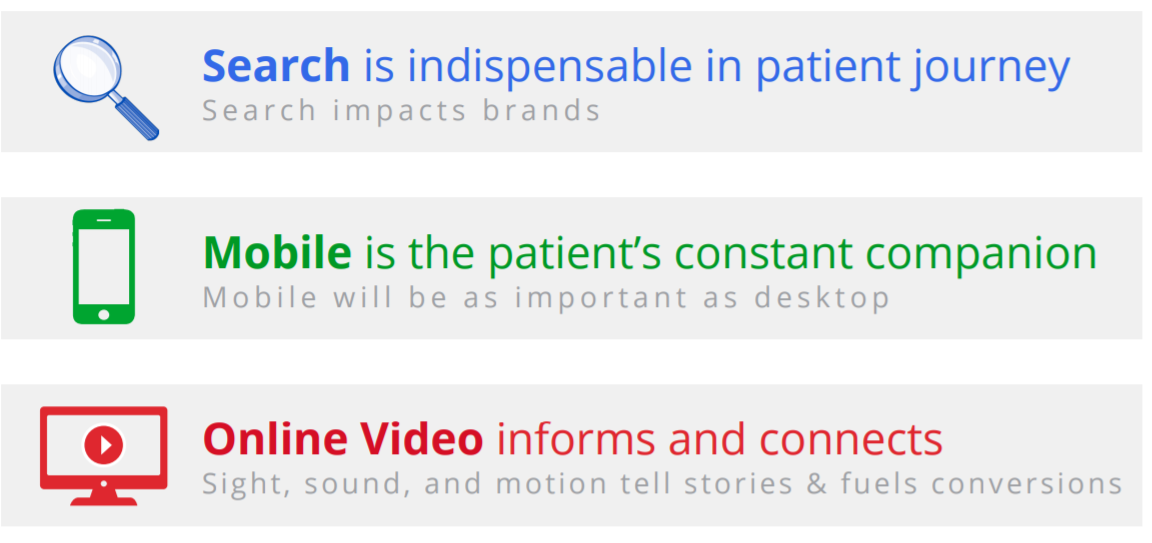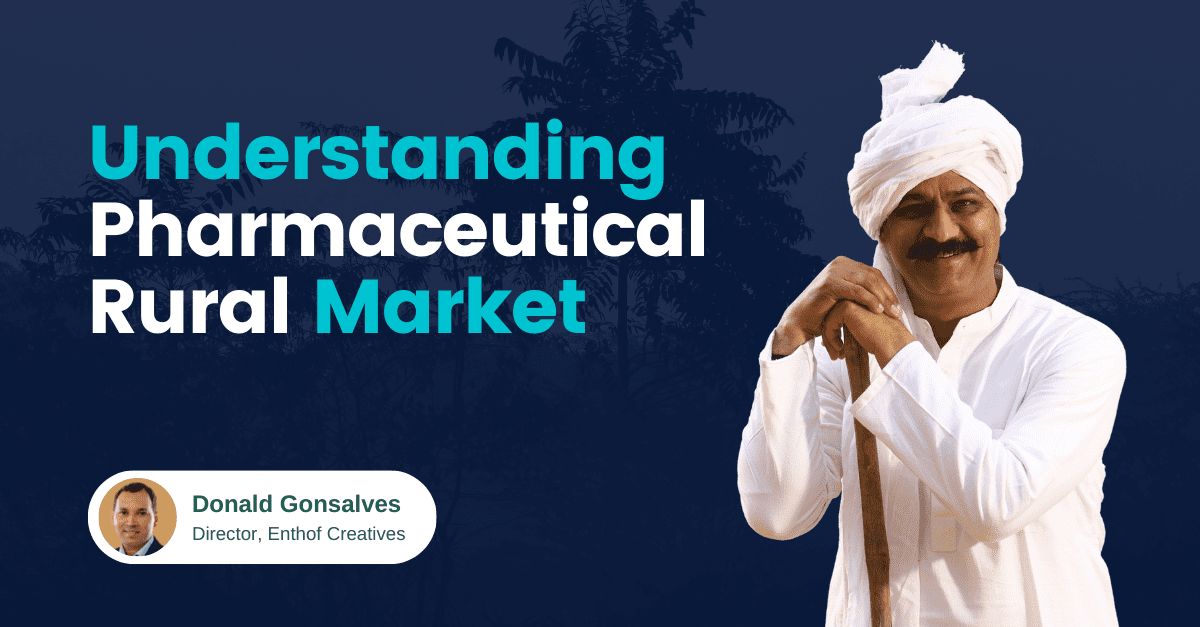As opposed to healthcare digital marketing trends, traditional marketing strategies such as television, print, and radio commercials are being widely used by many healthcare marketers even today. The traditional marketing mix also includes advertising in outdoor areas such as bus shelters, billboards, and trains / public transportation, as well as attending healthcare-related events.
The scene, however, is rapidly evolving with more and more consumers moving online to consume media and content. In India, popular OTT platforms such as Netflix, Amazon Prime, and Hotstar have grown in popularity. Furthermore, consumers read news and consume other content on social media platforms like Instagram, Facebook, and Twitter, and they rely on these platforms as their primary source of information. Everyone is shifting online and there is no stopping.
People use the internet to explore a wide variety of products and services. When it comes to searching for healthcare services, there are no exceptions. According to a study by Google and Compete, 44% of patients or their caretakers who identified hospitals on their mobile devices ended up planning a visit and scheduling an appointment. This is a case not only for hospitals, but also for pathology and diagnostic labs, ordering medications, and accessing home health care services. Many conventional marketing tactics are being disrupted by the internet.
Here are some recent Healthcare Digital Marketing trends that support the necessity to alter your marketing strategy:
Consumers are conducting their research online
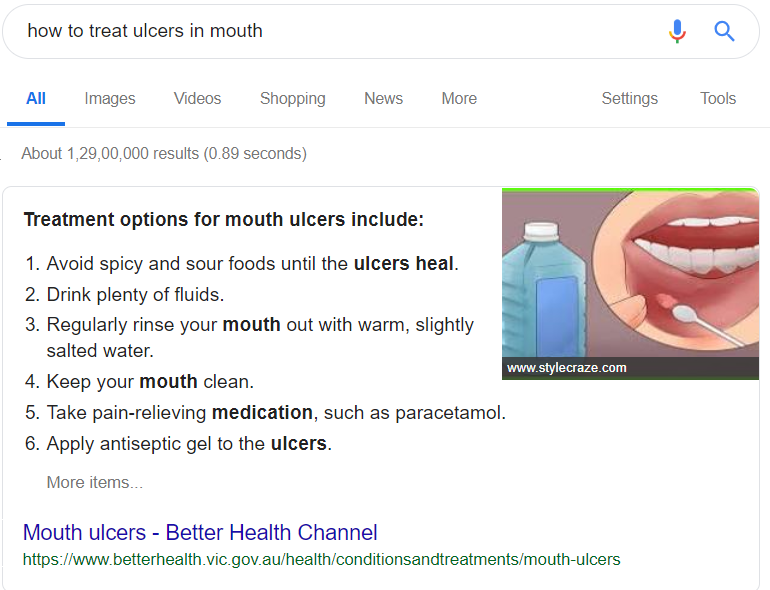
Many patients conduct online searches for symptoms and condition phrases prior to making an appointment with a healthcare professional. Consumers today are no longer willing to take a doctor’s advice at face value. They conduct extensive studies on their medications or seek a second opinion online.
Internet marketers can now target their audiences more precisely
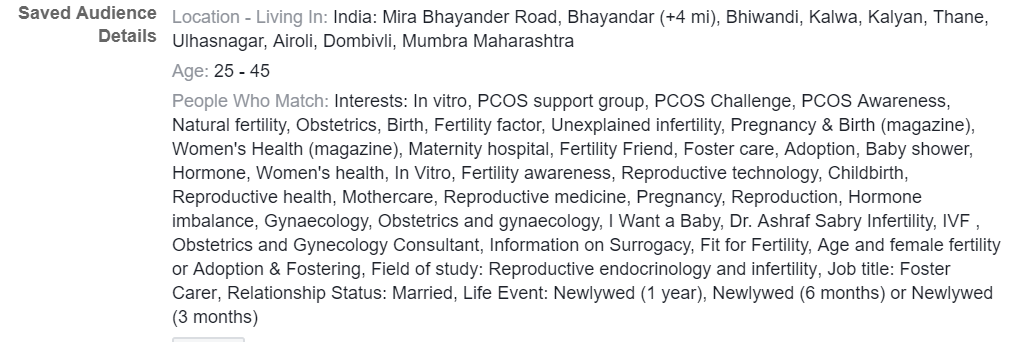
You can use Google or Bing Ads to target people who are searching online (query-based targeting). You can also target potential customers based on their age, gender, geographic location (region, country, state, city, pin code, or zip code), interests (music, movies, travel, etc.), behavior (online shoppers, online gamers, international travelers), and connections (liking or following a brand on Facebook / Instagram / Twitter, for example). Facebook Ads allows you to target people based on their interests, demographics, and location.
Marketing Budgets Are Shifting Online
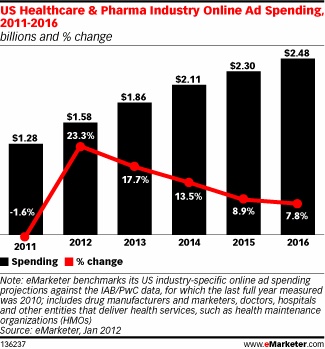
Health and pharmaceutical marketing budgets are shifting online for Healthcare Digital Marketing at an astonishing rate. According to eMarketer.com, healthcare and pharmaceutical industries in the United States spent $2.48 billion online in 2016. Other countries throughout the world, such as the United Kingdom, India, Singapore and Indonesia, appear to be following suit.
India’s and Other Developing Economies’ Healthcare Industries are Expanding
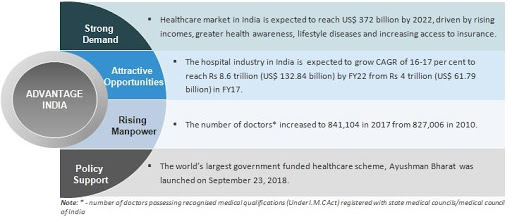
India’s healthcare sector had reached US$ 280 billion in 2020. The primary factors to growth would be rising income levels, increased health awareness, the higher priority of lifestyle diseases, and enhanced access to insurance. In FY 2016-17, India’s hospital industry was valued at Rs 4 trillion (US$ 61.79 billion) and is predicted to grow to Rs 8.6 trillion (US$ 132.84 billion) by FY 2021-22. The private sector has established itself as a major player in India’s healthcare business, accounting for over 74% of the country’s total healthcare spending. Telemedicine too, is a rapidly growing trend in India, with prominent hospitals such as Apollo, AIIMS, and Narayana Hrudayalaya utilising the technology. Healthcare Digital Marketing can utilise that budget for exponential growth.
Growth of Data-Driven Healthcare Digital Marketing
Although just a few parts of the healthcare industry have adopted a “data-driven” healthcare digital marketing strategy, there are numerous reasons why healthcare marketers must rely on data. First, personalisation of marketing communication via mobile devices and internet ads is possible, giving marketing a more personal touch while increasing the relevancy of the message. Second, it is feasible to accurately forecast future events by knowing customer behaviour in the past. When it comes to projecting revenue, customer lifetime value, or the return on investment of online advertising, healthcare marketers may use big data mining and predictive analytics to their benefit. Finally, data enables marketers to become more cost-effective and reduce wastage of money.
Why Do Healthcare Companies Need Digital Marketing?
Now that we understand that most industries are moving their marketing budgets online, it is imperative that healthcare companies need to leverage healthcare digital marketing to reach out to a new-age audience.
Here are some statistics related to Search, Mobile & Online Video that make a case for healthcare companies to leverage the power of healthcare digital marketing
58% of Smartphone Owners Download and Use Mobile Health or Fitness Apps
A study published in the Journal of Medical Internet Research shows that 58 percent of surveyed mobile phone users have downloaded at least one mobile health app onto their device. Furthermore, smartphone users seem to have high regard for mobile health apps, especially those focused on providing diet and fitness support.
Mobile Traffic to Grow Many Folds by 2021
As per Cisco’s VNI Mobile forecast highlights for 2016-2021, “Globally, mobile data traffic will grow 7-fold from 2016 to 2021, a compound annual growth rate of 47%. In India, mobile data traffic will grow 7-fold from 2016 to 2021, a compound annual growth rate of 49%. Healthcare Digital Marketing work wonders in such a senario.
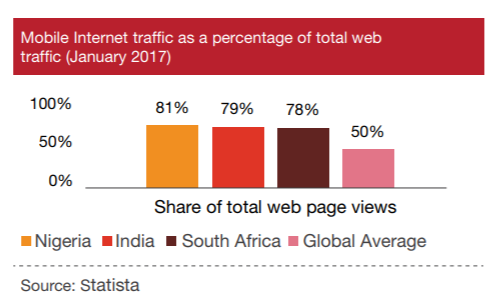
Furthermore, according to Google Trends, India ranks among the top five countries for search terms like ‘mobile health’, ‘health apps’, ‘medical apps’ and ‘mHealth’. This confirms more reasons for Healthcare Digital Marketing.
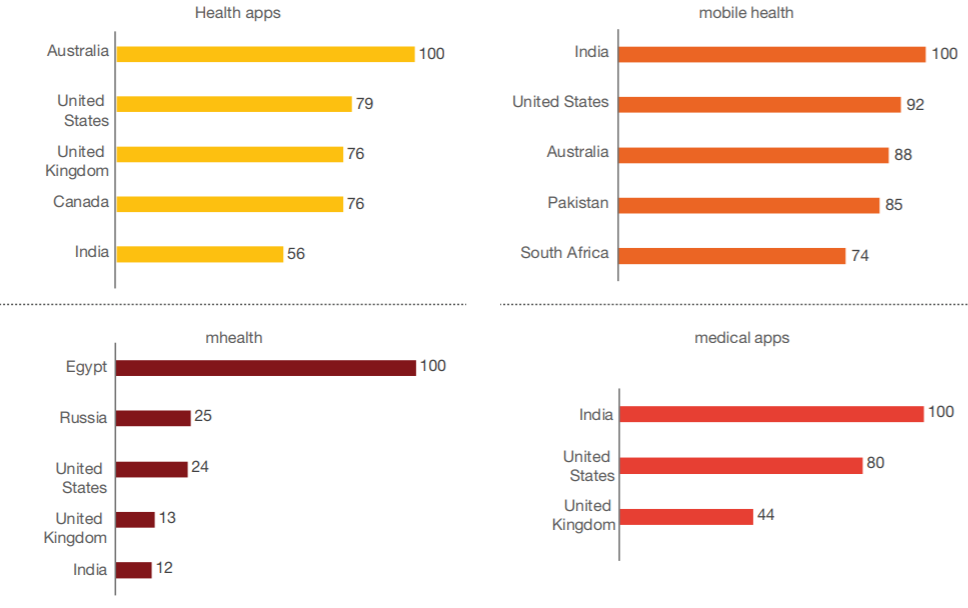
In a broad sense, mHealth is a set of apps, devices, connections that allow the user to be mobile, or reach out in a variety of ways
The Growing Influence of Social Media in Healthcare
Over 40% of consumers say that information found through social media affects the way they deal with their health. This statistic is further accentuated for consumers in the age group of 18 to 24. This age group is more than 2 times likely than 45 to 54-year-olds to discuss health-related topics on social media. As the younger population adopts social media and new forms of communication easily, it is important for healthcare marketers to join in on these conversations and leverage social media marketing. According to SearchEngineWatch.com, 90% of respondents from 18 to 24 years of age said they would trust medical information shared by others on their social media networks.
8 out of 10 Online Health Inquiries Start at a Search Engine
According to Pew Research Center, 77% of online health seekers in the USA say they began at a search engine such as Google, Bing, or Yahoo. Another 13% say they began at a site that specializes in health information, like WebMD. Most of these healthcare-related searches are local in nature i.e. we look for a doctor or a hospital “near me”.
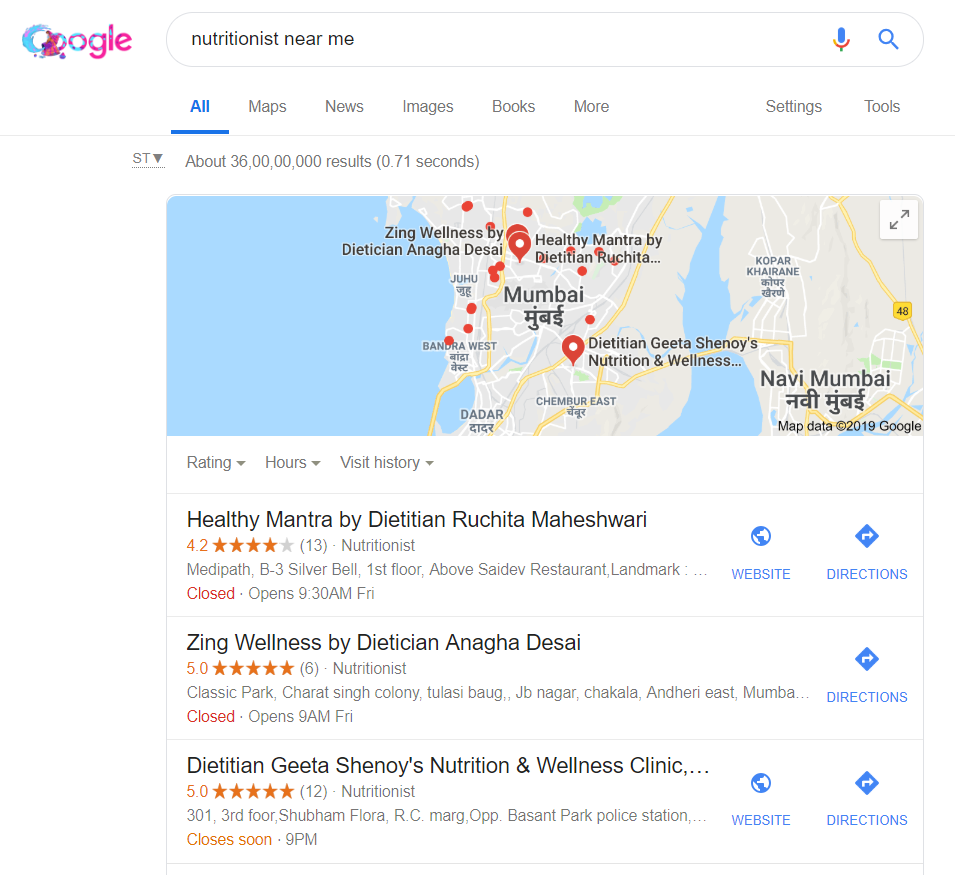
Search-Based Digital Marketing is Critical for Hospitals and Other Medical Institutes
As per the “Digital Journey to Wellness: Hospital Selection” survey conducted by Google and Compete that fielded more than 500 hospital researchers, search engines are a critical cog for healthcare marketers for Healthcare Digital Marketing.
- Search drives nearly 3x as many visitors to hospital sites compared to non-search visitors.
- Patients primarily search on symptoms and condition terms towards the moment of conversion.
- 44% of patients who research hospitals on a mobile device scheduled an appointment.
- 53% of patients who did not watch a hospital video were unaware they existed.
Online Video is a Pivotal Component of Hospital Research for Healthcare Digital Marketing
- According to research conducted by Google, 1 in 8 patients watched an online video on:
- Hospital Sites (42%)
- Health Insurance Information Sites (31%)
- Health Information Sites (30%)
- YouTube (29%)
- Health Insurance Company Sites (20%)
Patients seek video reviews and testimonials to learn about hospitals and treatment options.
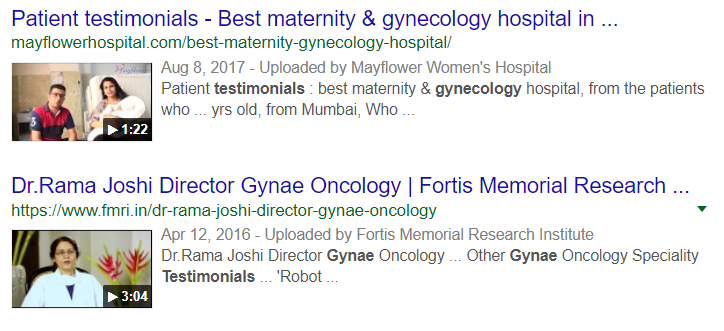
A more telling statistic is that traffic from YouTube to hospital sites has increased by 119%.
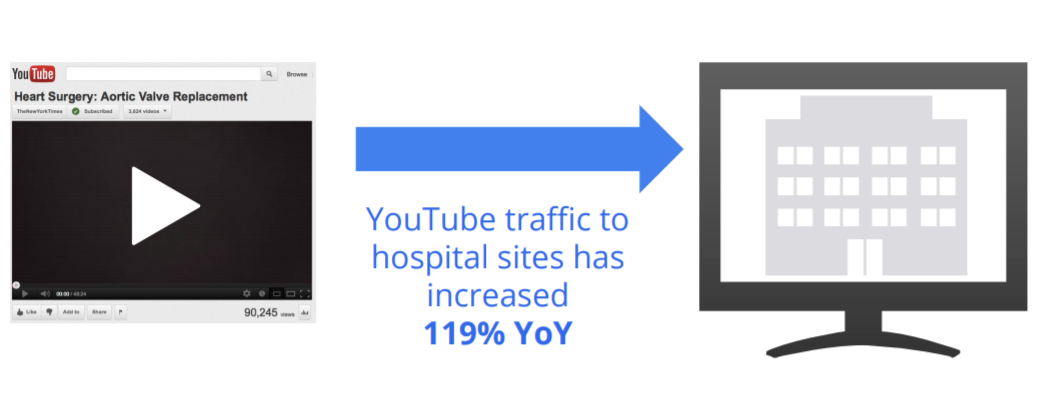
According to MedTech Media, 31% of healthcare professionals use social media for professional networking. Social Media helps in professional development for healthcare workers from networks such as LinkedIn, Twitter, and Facebook. This means that new-age healthcare marketers have to adapt to independently manage their profiles through online mediums. Healthcare Digital Marketing can leverage this information for higher reach.
About the Author
 Donald Gonsalves is the founder of Enthof Creatives and a regular writer for the website’s blog. He has more than 2 decades of experience in marketing, sales and branding. His need to research and learn more about Healthcare Digital Marketing is never-ending. To contact him, just drop an email to donald.g@sh118.global.temp.domains
Donald Gonsalves is the founder of Enthof Creatives and a regular writer for the website’s blog. He has more than 2 decades of experience in marketing, sales and branding. His need to research and learn more about Healthcare Digital Marketing is never-ending. To contact him, just drop an email to donald.g@sh118.global.temp.domains
Follow him on Linkedin – https://www.linkedin.com/in/donaldgonsalves
